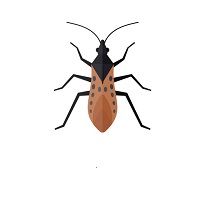Article
Chagas Disease Affects More than 300,000 in US
Author(s):
Researchers calculate that more than 300,000 people in the US are now affected by the parasitic illness Chagas Disease, once limited to Latin and South America.

Chagas Disease, an infection caused by the parasite T. cruzi has made its way to the US, affecting an estimated 300,000 people, researchers said today at IDWeek 2016 in New Orleans, LA.
Jennifer Manne-Goehler, MD, DSc, MSc, of Beth Israel Deaconess Medical Center in Boston, MA and colleagues calculated estimates of state and national prevalence of Chagas. They used data of foreign-born Hispanics then applied the prevalence estimates of Chagas in those immigrants’ native countries.
They also used the number of infections identified in donated blood supply, data provided by the American Associated of Blood Banks, and cases treated based on drug release data from the US Centers for Disease Control and Prevention.
The US states in which the disease is most prevalent are California and Texas, and New York and New Jersey are among the top five. There are 10 states with at least 5,000 cases.
The infection can cause serious heart problems long after people get it. About 30% of infected patients have such consequences.
Treatment is effective if done early, and gets less effective the longer a person has the disease.
There are 10 US states with at least 5,000 known Chagas-afflicted residents, not counted undocumented people, Manne-Goehler said.
The parasite’s vector is the triatomite bug (seen in photo), sometimes called the kissing bug. It bites people leaving an open sore where the infected bug’s urine or feces can enter the person’s blood.
It can also be transmitted prenatally or during childbirth by infected mothers. Food contaminated by T. cruzi is another source, as is blood transfusion.
Answering questions from the audience at a session on emerging global diseases today, Manne-Goehler agreed that there is a problem in using national prevalence rates to extrapolate US infection.
The likelihood a person has Chagas in, for instance, Mexico, depends on what part of that country he or she lives in. That means that people from Mexico who move to the US could be from a place with a high percentage of cases or a low one.
The team did the study in part to show the need for better funded larger studies to get the best numbers on how many people in the US have Chagas, she said.
“It’s hard to believe that it’s hard to get the resources to study a disease that affects several hundred thousand people in the US,” she noted.
Discussion moderator Joseph Vinetz, MD said that from a clinician’s perspective, another problem is that the existing treatments are not always easy to sell to Chagas patients.
“The patient asks me ‘What do I do, doctor?” he said, and I have to tell them you take a drug that will make you barf for two or three months and it might not work.”
They agreed that better remedies as well as accurate surveillance are needed.
Related Coverage:





